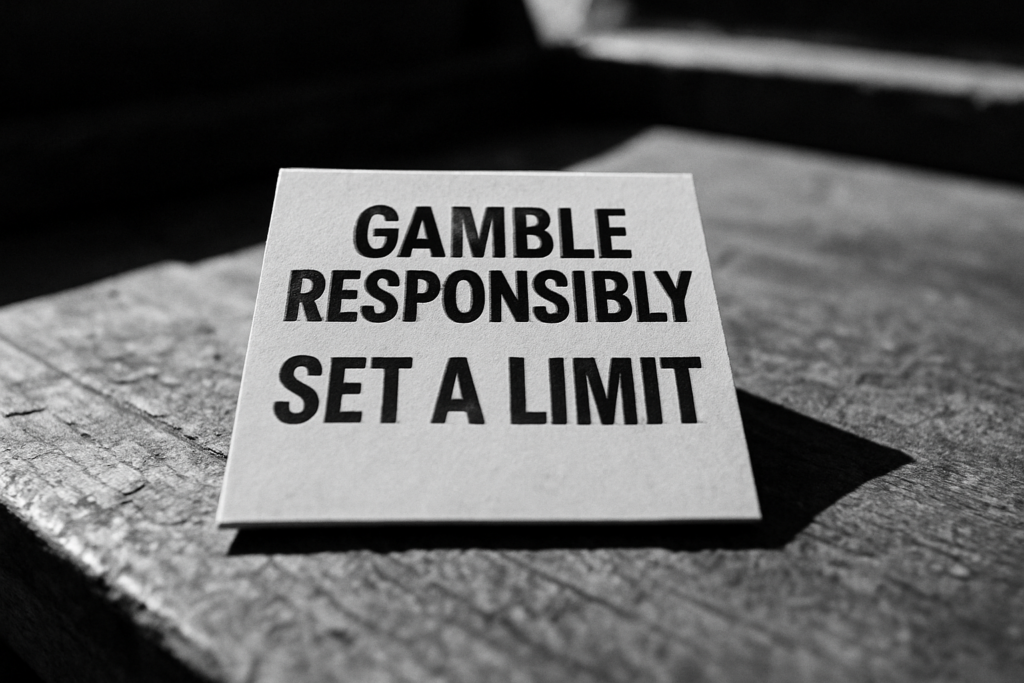Understanding the Importance of Setting Limits
Establishing limits in gambling plays a key role in maintaining control. These boundaries keep gambling enjoyable while avoiding unnecessary risks.
Why Limits Are Crucial in Gambling
Limits provide structure, reducing the chances of impulsive decisions. Without defined boundaries, it’s easy to exceed budgets or spend excessive time gambling. Setting time limits, such as allocating two hours per session, helps avoid neglecting responsibilities like work or family. Similarly, creating a financial cap ensures spending aligns with personal budgets, like designating $50 for entertainment rather than necessities.
Establishing limits safeguards mental health. Gambling within limits prevents stress from financial losses or guilt over lost time. It also supports accountability, encouraging a healthy relationship with gambling.
Consequences of Poor Time and Money Management
- Lack of limits can lead to escalating financial problems.
- Gambling beyond a budget consumes money meant for essential expenses like rent or groceries.
- Excessive losses may also lead to borrowing, which causes debt to accumulate.
- Mismanaged time results in neglect of personal priorities.
- Spending long hours gambling reduces time for work, family, or other commitments, which strains relationships and impacts productivity.
- Persistent mismanagement can lead to addiction, with behavior becoming harder to control over time.
Strategies for Managing Time in Gambling
Managing time effectively in gambling ensures the activity remains enjoyable and does not interfere with daily responsibilities. Implementing structured approaches helps maintain balance and focus.
Tracking Gambling Sessions
Monitoring session durations is essential for avoiding excessive gambling. I use tools like timers or gambling apps that track time spent and alert me after reaching set limits. For example, a two-hour session cap helps me stop before overcommitting my schedule. Logging each session, including start and end times, provides a clear overview of my gambling habits and highlights patterns that might need adjustment.
Creating a Balanced Schedule
Allocating specific time slots for gambling ensures I prioritize other commitments. I integrate gambling into my weekly routine without compromising essential tasks like work or family time. For instance, dedicating Saturday evenings for gambling keeps it within my leisure time. By setting predefined periods, I align gambling with my overall schedule to prevent it from disrupting everyday activities.
Recognizing When to Take Breaks
Identifying the right moments to pause gambling helps maintain focus and well-being. Signs like fatigue, reduced concentration, or frustration indicate when I should step away. Gambling in short intervals, such as 45 minutes followed by a 15-minute break, prevents prolonged sessions. These breaks ensure I stay refreshed and avoid the pitfalls of continuous gambling.
Tips for Financial Management in Gambling

Managing finances is essential to maintaining control while gambling. Proper planning ensures the activity remains an enjoyable pastime without causing financial stress.
Setting a Budget for Gambling Activities
I always recommend allocating a specific budget solely for gambling. This budget comes from disposable income, not funds needed for essentials like:
- rent
- bills
- savings
Clearly define the maximum amount to spend within a day, week, or month, and stick to it regardless of wins or losses. Once the set amount is spent, stop gambling instead of chasing losses or spending beyond financial limits.
Understanding the Risks of Overspending
Overspending in gambling can quickly cause financial instability. I find that it’s important to be aware of emotional triggers, like frustration or excitement, which can lead to irrational spending. Gambling more than planned breeds problems like debt accumulation or neglecting other financial priorities. To avoid these risks, I ensure that any unplanned expenses during gambling sessions are tracked and evaluated before committing additional funds.
Tools to Monitor Gambling Expenses
Tracking gambling expenses helps ensure that spending aligns with the set budget. I use tools like expense-tracking apps or spreadsheets to record all bets and winnings. Many online gambling platforms also offer self-monitoring tools, such as spending limits and transaction histories, which I’ve found helpful in staying accountable. For offline gambling, setting clear, cash-only limits before visiting is an effective way to maintain control.
The Psychological Benefits of Managing Limits
Setting limits during gambling doesn’t just maintain control; it enhances mental well-being. Proper management of time and money fosters positive psychological outcomes by reducing stress, promoting better decision-making, and encouraging a healthier connection to gambling.
Reducing Stress and Anxiety
Establishing strict time and financial boundaries minimizes the psychological toll of gambling. Stress and anxiety often stem from overspending or spending too much time gaming. For example, when I decide in advance how much I can afford to lose and the duration I’ll play, I avoid the guilt and worry of going beyond my means. Maintaining these boundaries reduces the fear of financial instability and keeps gambling enjoyable.
Improving Overall Decision-Making
When clear limits are in place, gambling decisions become more thoughtful and less impulsive. Predefined constraints prevent emotional responses like chasing losses or overindulging during a winning streak. I rely on these set parameters to keep focus and make more rational judgments about when to stop or continue, ultimately leading to a better gaming experience. These habits carry over into other areas of life, improving overall decision-making skills.
Fostering a Healthier Relationship with Gambling
Managing limits helps reinforce gambling as a form of entertainment rather than a compulsion. When I gamble within the framework of set boundaries, the activity remains enjoyable without overshadowing other responsibilities or affecting relationships. This approach builds a sustainable and positive connection to gambling, ensuring it doesn’t spiral into harmful behaviors.






















































































































































































































































































































 Steven Alfonso – Senior Gambling Analyst
Steven Alfonso serves as the Senior Gambling Analyst at Gamble Wise Roll, bringing a wealth of industry knowledge and analytical expertise to the platform. With a background in gaming economics and market research, Steven delves into the latest trends shaping the gambling world, from emerging skill-based betting opportunities to regulatory shifts and technological advancements. His in-depth reports provide a comprehensive look at how the industry is evolving, offering valuable insights for both casual players and seasoned professionals. Passionate about data-driven decision-making, Steven ensures that Gamble Wise Roll remains at the forefront of industry analysis, helping readers understand the risks, opportunities, and strategies that define modern gambling.
Steven Alfonso – Senior Gambling Analyst
Steven Alfonso serves as the Senior Gambling Analyst at Gamble Wise Roll, bringing a wealth of industry knowledge and analytical expertise to the platform. With a background in gaming economics and market research, Steven delves into the latest trends shaping the gambling world, from emerging skill-based betting opportunities to regulatory shifts and technological advancements. His in-depth reports provide a comprehensive look at how the industry is evolving, offering valuable insights for both casual players and seasoned professionals. Passionate about data-driven decision-making, Steven ensures that Gamble Wise Roll remains at the forefront of industry analysis, helping readers understand the risks, opportunities, and strategies that define modern gambling.
